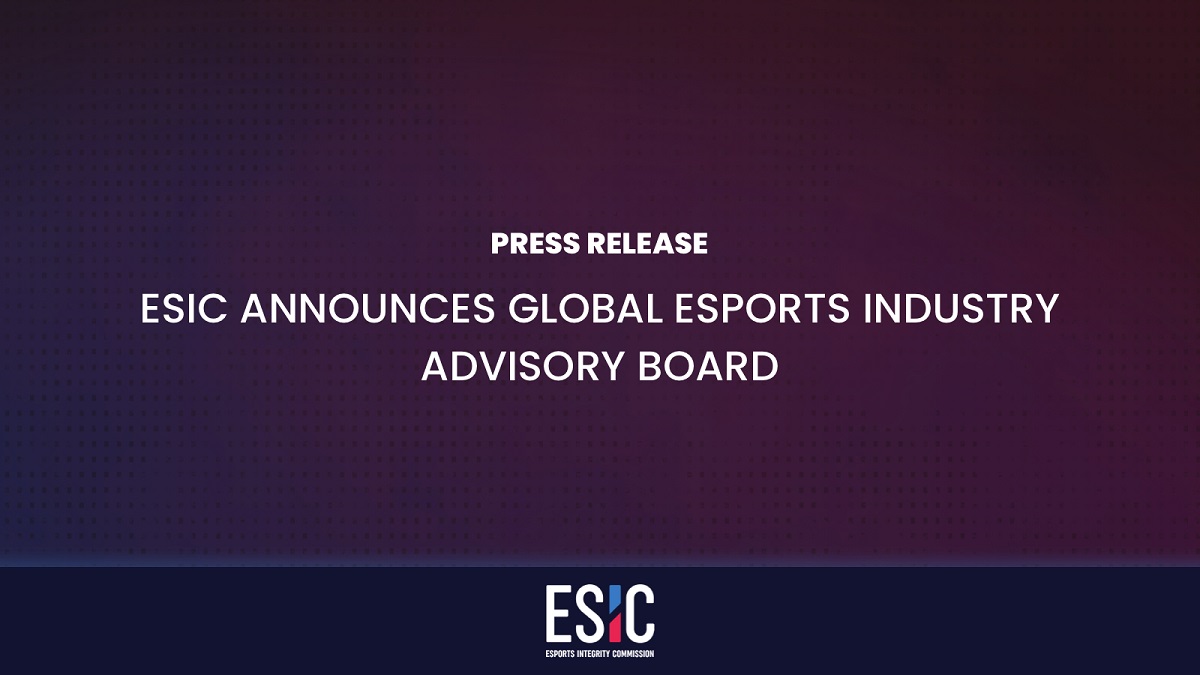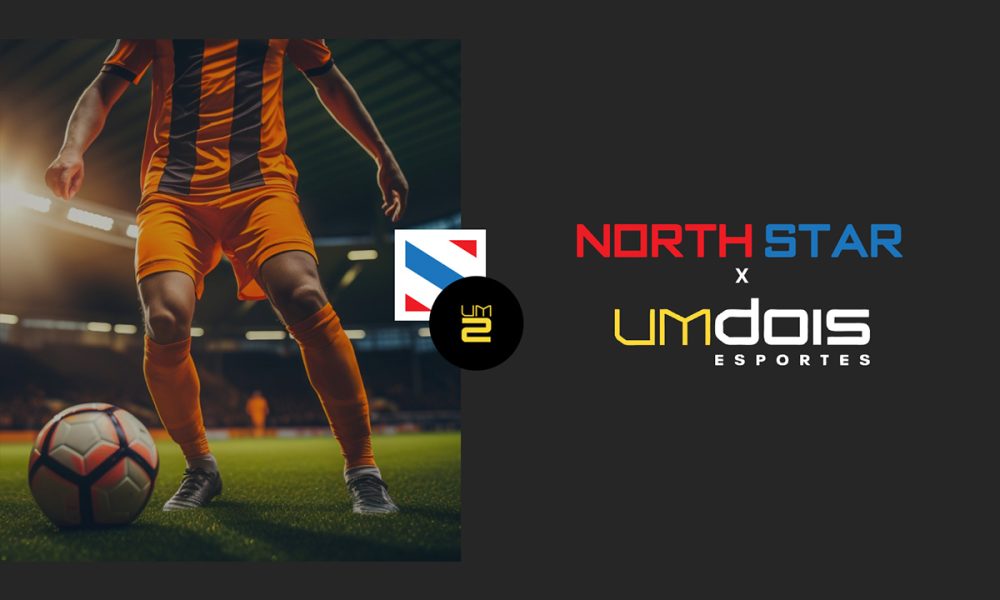

eSports
FIVE THINGS THAT WILL FUEL THE GROWTH OF ESPORTS INDUSTRY
The new age has very well got adapted to the virtual world of esports. They get excited to take up new challenges, explore some amazing new landscapes with different themes and superficial powers, which one can only hope for in reality. With constant upgradation in technology, the definition of gaming has become more complex and the industry is overpowering.
But the future seems to hold more surprises for the growing esports fanatics. `
Abhishek Aggarwal, the Co-founder and CEO at Trinity Gaming, India’s top gaming talent Management Company have listed down the 5 things that will ensure the growth of esports industry in future:
Introduction of 5G: Accessibility to best technology is crucial in the current era of esports and gaming. Considered as one of the most influential and exciting developments, 5G will offer a faster speed and improved latency, which will give the gamers a more competitive edge. For instance, Telecom giant Airtel hosted India’s first-ever Cloud gaming demo on a LIVE Airtel 5G test network to test the gaming on a simple smartphone at record speed and latency. Response delay, often known as latency frustrates gamers the most. Airtel 5G has demonstrated that it can reduce reaction time from 20 milliseconds to 5 milliseconds. While the latency may or may not impact the casual gaming experience, it affects the efficiency and experience in online multiplayer games such as racing and shooting.
For players it would mean winning or losing a match, and to their audience, it would be the advanced experience. With this, gaming would surely take precedence with a higher bandwidth supporting the esports community to thrive.
Cloud Technology for the Gaming Industry: Gamers/esports community constantly feed in data. This technology comes as blessing to protect the information from getting hacked by an unknown entity. Cloud also allows users to maintain the high quality of the game even while playing in low-end devices.
It has several advantages attached to it and one among them is, even if your system breaks down, you won’t lose your game. With growing smartphones penetration and a vast youth population, 5G-backed cloud gaming could spread to remote areas and offer gamers the right ecosystem to compete and excel in the national and international arena.
Esports in the path to be recognised as a real sport: E-tournaments are taking over across nations inviting ace players to compete and take home a whooping amount of prize money. With time it has got a structure/framework based on which it functions with support from big investors. Their growing power has been sensed by industries and its gradually entering into the mainstream as a serious sport. The latest announcement of 8 esports titles in Asian Games 2022 is being welcomed in the Esports community, only making it more prominent and influential in every aspect.
Brand collaboration with Gaming Influencers: Brand collaboration makes it easier for the esports community to further establish their significance and is a great source to generate revenue. These engagements ensure the brand visibility to their targeted audience in a streamlined fashion and gaining confidence of the loyal supporters of the esports player. This has revolutionized the way gamers are perceived in growing business. Gaming content creators are becoming an effective tool to reach the audience. Content creators not only play the games but they entertain their audiences as well, their fan following is mostly the age group of 15 to 30 which is the most targeted audience in advertising terms. Out of all the influencers in the market, gamers are known to have the best audience engagement in terms of viewership and audience-creator relationships. Trinity Gaming is helping Brands to create innovative Branding Strategies with the help of these dynamic Creators and Influencers in the gaming & esports ecosystem.
Content creation around gaming: It is a young concept which has seen the power to engage with viewers and provide entertainment to a wide demography. These creators bring out a more dynamic aspect of esports, share their experiences, do’s and don’ts, etc. and have now become a strong part of the community. They have successfully grabbed the attention of viewers who are not even part of the gaming ecosystem, making it more diverse and relatable for everyone. Trinity Gaming have created a unique ecosystem for the gaming content creators and currently have a clan of 250+ top creators who have been working with India’s top brands.
The possibilities are limitless, and it would be surely interesting to witness what more the future of esports industry holds.
eSports
R&D rethink needed for sportsbooks to harness esports’ power

 Esports betting is still grappling with a perception problem amongst operators. Despite the leaps and bounds in product development made by suppliers – particularly in the last two years – esports hasn’t shaken off the image built in the late 2010s.
Esports betting is still grappling with a perception problem amongst operators. Despite the leaps and bounds in product development made by suppliers – particularly in the last two years – esports hasn’t shaken off the image built in the late 2010s.
Our good friend, Oliver Niner, Head of Sales at PandaScore, has been kind to share the below article with us.
There’s scepticism around esports betting’s value, how well it can actually perform and what’s needed to make it appeal to bettors. A big part of that comes down to perception, which shapes the research and development (R&D) choices made by each operator.
Self-fulfilling prophecy?
Operators who have put the research and development (R&D) resources into esports are seeing excellent growth, while others are still treating it like part of a long tail. The lack of a uniform approach to esports often translates into hesitancy to be bullish and invest in esports.
Whereas in the United States, post-PASPA sports betting has exploded and operators are seeking to capture as much territory and market share as possible because in most cases, you switch the lights on and the money comes in. It’s, of course, good business sense to take opportunities like this – you can apply the same templates used elsewhere on an incredibly lucrative market.
This kind of approach has been attempted for esports and hasn’t found the same success. Granted, the legislation for betting on esports has been somewhat slower than that of sports betting and iGaming.
However, bullish operators have acknowledged the fact that esports hasn’t found the same success in regulated states and asked what can be done differently, while for others, esports has been thrown into the too-hard basket or relegated to the bargain bucket.
For the latter, the fate of the esports vertical becomes a self-fulfilling prophecy – especially if an operator already using a budget esports product that throttles its very growth.
It takes two to tango
When esports is discussed in broader betting circles, you’ll often hear different versions of the same talking point: the problem with esports is no one is doing it well, it doesn’t innovate.
This argument is a case of the pot calling the kettle black. Esports is a driver of innovation, and it is sportsbook R&D that is holding it back.
Multiple suppliers on the market are investing significant resources into R&D, and bullish operators are leveraging these product innovations to acquire new customers and create engagements made for the internet age.
There are understandable reasons why sports betting doesn’t innovate. It’s largely because operators focus on acquisition, entering new territories and spending money on data rights. But the actual R&D on sportsbook products is left lacking, with ever-increasing cost-per-acquisition (CPA) numbers a clear symptom of this.
It means that if an operator does decide to use or acquire an esports specialist supplier but does little to cater its product and attempts to just lay the sports betting template over the top, of course performance will be throttled.
It’s like putting a Ferrari engine in a Prius – no offence to Toyota or Prius owners.
The same problem exists on the platform supplier front. Platforms are understandably focused on compliance and getting customers live, not necessarily improving models or their products.
Even the idea that if you just acquire an innovative company the problem is solved or you have found the solution, doesn’t hold water. In many cases, the company is acquired and plenty of noise is made about it, but there’s little organisational investment in R&D afterwards.
It’s not just in esports
These problems extend to customer acquisition and marketing for most emerging markets, not just esports. There’s a rush to use the same old playbook in newer sectors because it’s easy.
The fantasy vs. house sector in the US is already experiencing an acquisition arms race. As analyst Dustin Gouker points out, deposit match bonuses for new users on fantasy vs house products have jumped from $100 to as high as $500 in some places.
This is the same race that played out in sports betting and despite the costs, there’s little effort from most operators to try something different. There’s less work when you just put the same acquisition template on an emerging sector and call it a day. This seems to be an accepted practice in the industry, for better or for worse.
Esports betting success requires ongoing dialogue
Rather than attempting to wedge esports into hegemonic sportsbook approaches, sportsbooks need to take a completely unique approach.
The fact is the betting sector has barely scratched the surface – communities of esports fans are still dormant. Canadian operator Rivalry has built a successful, esports-first business by embracing the ever-changing internet culture that esports inhabits. French esports organisation Karmine Corp recently sold out a 30,000-person stadium for an event with no prize money up for grabs.
Innovative products developed on the supplier side like microbetting and betbuilders are only half of the equation.
Maximising esports revenues requires institutional investment, ongoing R&D and collaboration between suppliers and operators to create products and experiences. This includes having staff on the operator side that can drive and push the product further, and crucially, rethinking current sportsbook strategies and practices.
Building experiences for betting’s greatest emerging market – one that caters to your future core audience – takes investment, innovation and a willingness to experiment. If the industry wants to make the most of the Millennial and Gen Z audience that will become its primary customers, investment into R&D and close collaboration between suppliers and operators is needed. Many hands makes light work.
eSports
ESIC Announces Establishment of Global Esports Industry Advisory Board

The Esports Integrity Commission (ESIC) is pleased to announce the establishment of its Global Esports Industry Advisory Board, designed to enhance integrity and ethical practices across the esports landscape. The Advisory Board will serve a pivotal role by providing expert advice to ESIC’s Chief Executive Officer on a range of critical industry issues.
The primary function of the Advisory Board is to create a robust framework for integrity and fairness, setting a global benchmark for ethical conduct and fair competition in esports. The board will offer strategic insights, help shape policies governing fair play, liaise with key industry stakeholders, and act as ambassadors advocating for ethical practices.
ESIC has appointed two highly esteemed members to inaugurate this board:
- David Neichel, Senior Vice President of Public & International Affairs at ESL FACEIT Group (EFG), joins the Advisory Board with over fifteen years of experience in the video games industry, including significant roles at Activision-Blizzard and Electronic Arts. David’s profound impact on international and public affairs initiatives makes him an invaluable addition to the board.
- Robbie Douek, CEO of BLAST, also joins the Advisory Board, bringing a wealth of experience from his roles at Google and Disney, along with his leadership through major acquisitions. Robbie is celebrated for his strategic leadership and his instrumental role in elevating esports to a significant global entertainment platform.
The formation of the Advisory Board is an engagement that underscores the commitment of its members to upholding and promoting the highest standards of integrity within the esports industry. The board will meet as required to address strategic challenges and ensure that ESIC’s initiatives effectively meet current and future industry needs.
“Both David and Robbie bring a remarkable depth of knowledge and a passion for advancing the integrity of esports,” said Stephen Hanna, CEO of ESIC. “Their expertise will be crucial as we navigate the evolving landscape of esports and strive to maintain the integrity that our community expects and deserves.”
Robbie Douek, CEO at BLAST, said: “I’m honoured to be given the opportunity to support the Global Esports Industry Advisory Board and ESIC in their ambition to create the best and fairest environment possible for players, teams and fans.”
David Neichel, Senior Vice President of Public & International Affairs at ESL FACEIT Group (EFG) also commented: “It is a true honour to join the Global Esports Industry Advisory Board and support ESIC’s successful journey. Fairplay and integrity are at the core of esports. We owe it to the players and to the fans and for a better endemic industry governance”
The post ESIC Announces Establishment of Global Esports Industry Advisory Board appeared first on European Gaming Industry News.
eSports
North Star Network Acquires Um Dois Esportes

North Star Network has acquired Um Dois Esportes, a sports coverage and analysis site created from the merger of Gazeta Do Povo and Tribuna do Paraná in 2020.
Julien Josset, co-founder of North Star Network, said: “Thank you to the team at GRPCOM for their faith in us to take the brand forward. Um Dois Esportes is an established and renowned site in Paraná State, and we’re excited about the challenge of developing this asset.
“We’re happy to maintain the collaboration with the existing editorial team, and look forward to working with them, bringing our unique NSN approach, to take UDE forward.”
NSN’s signing of Um Dois Esportes is the media house’s fourth acquisition of 2024, following the recent deals to purchase UK-based SportsMole and MrFixitsTips, as well as Chilean site AlAireLibre, which was announced in March.
The latest addition to the North Star media portfolio joins existing assets including Top Mercato, Afrik-Foot, and Vringe. The Paris-based company already oversees a significant Brazilian operation, delivering over 6 million sessions per month, from the likes of Trivela, Premier League Brasil and Lakers Brasil.
NSN will retain Curitiba-based journalists from the Um Dois Esportes legacy team to maintain the asset’s unique tone and popular coverage of the Paraná sports scene across site and social.
Rafael Mello, Director of GRPCOM, said: “We were surprised by the interest, and initially had no intention of selling Um Dois, but as the conversations evolved, we realised this was a serious group with good intentions. We were very happy to see our project being valued by a large international group and going global, demonstrating the quality of the content we produced.
“We’re also proud that North Star inherited our journalists, who are truly responsible for the success of the product we offer readers every day.”
-

 gaming2 years ago
gaming2 years agoODIN by 4Players: Immersive, state-of-the-art in-game audio launches into the next generation of gaming
-
EEG iGaming Directory7 years ago
iSoftBet continues to grow with new release Forest Mania
-
News6 years ago
Softbroke collaborates with Asia Live Tech for the expansion of the service line in the igaming market
-
News5 years ago
Super Bowl LIII: NFL Fans Can Bet on the #1 Sportsbook Review Site Betting-Super-Bowl.com, Providing Free Unbiased and Trusted News, Picks and Predictions
-
iGaming Industry6 years ago
Rick Meitzler appointed to the Indian Gaming Magazine Advisory Board for 2018
-
News5 years ago
REVEALED: Top eSports players set to earn $3.2 million in 2019
-
iGaming Industry6 years ago
French Senator raises Loot Boxes to France’s Gambling Regulator
-
News6 years ago
Exclusive Interview with Miklos Handa (Founder of the email marketing solutions, “MailMike.net”), speaker at Vienna International Gaming Expo 2018










